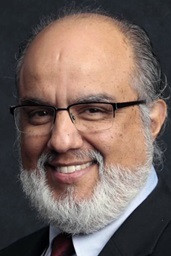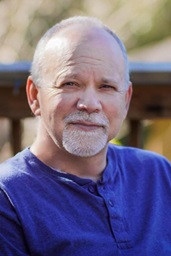The Revs. Sylvia Collins-Ball and Deborah Wilkins weren’t sure what would come from the “Act of Repentance Toward Healing Relationships with Indigenous People” service held April 27 during the 2012 General Conference.
In fact, just the day before, Wilkins agreed it was important, but said she didn’t expect it to accomplish much.
After the service, however, both said they were a little more hopeful, with Collins-Ball “optimistically cautious” and Wilkins “hopeful and fearful.”
“I think the spirit moved,” Wilkins said. “I wasn’t expecting it to be this well done. … I think there was a moment here.”
Collins-Ball and Wilkins serve churches in Pembroke, N.C. Collins-Ball is pastor at Branch Street United Methodist Church, a downtown, Native American congregation. Wilkins serves at Wesley United Methodist Church, a white congregation. Both are members of the Lumbee tribe. They and more than a dozen other Native American United Methodists made the nearly 10-hour drive from North Carolina to Tampa April 26 to attend the healing service and a dinner sponsored by the Native American Comprehensive Plan.
Prior to the service, the two women were concerned about what would be done differently once General Conference ends. The feel they now have a better clue. During part of the service, a number of bishops stood on behalf of the Council of Bishops asking for forgiveness for the church’s part in the atrocities perpetrated against indigenous people and promising to take concrete steps in the follow-up to General Conference to ensure mistreatment of native people ends.
Bishop Rosemarie Wenner of Germany outlined some of those steps:
For Wilkins, that’s the hopeful part.
“There was a ton of stuff there. It’s going to engage total transformation,” she said. But there was so much there, she said she wants to “see that written list.”
Wilkins was also pleased with what she heard as a commitment of resources and funding for Native American ministries.
The fearful part, she said, is not knowing whether the funding really will be available to make it all happen. She is worried about potential cutbacks threatening Native American ministries.
“I heard a bunch of promises,” she said, “but General Conference isn’t over yet.
“This is a watershed year for the church, yes, but especially minorities in the church, so we’ll see. I’m hopeful and at the same time … afraid about our futures.”
Collins-Ball says her prayer is that the bishops truly meant what they said and the church will move in a different direction.
“We (Native Americans) want to do the right thing, and we don’t want to get hurt, and in return, we will wait for the response, prayerfully,” she said.
“I can’t wait for the response … the response you’ll see from the delegates,” Wilkins said. “I’m looking forward to that, and we’ll see what the impact of this is.”
Like what you're reading? Support the ministry of UM News! Your support ensures the latest denominational news, dynamic stories and informative articles will continue to connect our global community. Make a tax-deductible donation at ResourceUMC.org/GiveUMCom.



